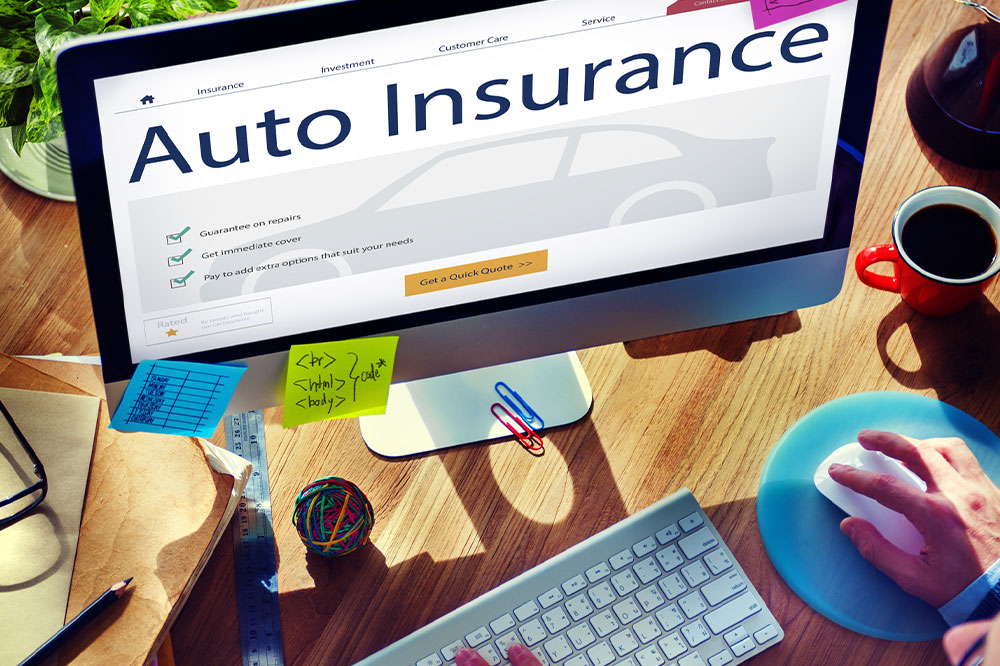
11 Mistakes to Avoid While Buying Auto Insurance
Signing up for auto insurance is among the most important things to do when buying a car. It is considered a legal requirement in most states and cannot be avoided. However, insurance contributes to a sizable chunk of the vehicle’s final price. So, you must find the right policy that offers the best coverage at the minimum possible price. Here are 11 critical mistakes to avoid when buying auto insurance.
Not shopping around
It is essential to shop around and get quotes from different companies before finalizing an insurance plan. You can hire an agent to get quotes from multiple auto insurance providers or look for them online. An agent will help you get the best coverage at the lowest possible premium but may charge a fee for their services. Remember to start shopping around for policies well before finalizing your car’s purchase. Without insurance, you may be unable to take your vehicle home from the dealership.
Not understanding your needs
Depending on the state you live in, there may be rules regarding the type of insurance plan you must buy and the minimum amount. Ensure to check these guidelines before finalizing a policy. Providers generally have different levels of insurance, and you must choose one based on your need. For instance, if you are driving a ten-year-old subcompact car, comprehensive insurance might be suitable since it will cost you less. If you have recently purchased a luxury car, you may want a plan with higher liability coverage and other add-ons. You can best determine your car’s insurance requirements by speaking to a trusted, licensed insurance agent.
Lying during the application process
Lying to your insurance company can render your policy null and void. If they cancel your plan, other providers may also hesitate to offer you a policy after looking at your poor records. So, do not lie on your insurance application for better premium rates or other benefits. Be honest about how much you drive and the value and condition of your car. Also, tell them about your driving and accident history, as they have access to your DMV records and can cross-check the same.
Not looking for discounts
Most insurance companies offer discounts to customers if they sign up for multiple insurance products. You are also more likely to enjoy a lower price if you use your vehicle seasonally, own a car equipped with driving safety features like assisted parking, pay the total annual premium in a lump sum, or are willing to use a telematic device to record your driving pattern. Remember, your agent can help negotiate better deals and discounts for you, so be sure to ask!
Not considering the cost of adding different drivers
Adding first-time drivers to your insurance policy can significantly increase its cost. According to statistics, inexperienced drivers are likelier to be involved in crashes. Similarly, if someone in your home has a history of accidents and traffic violations, they will drive up the insurance rate. Another factor that can impact the premium charged is your car’s model. High-horsepower cars usually have higher premiums as their users may engage in risky driving maneuvers. Understand these details before signing up for a policy. Remember, your insurance policy may also deny claims if someone not on your insurance policy drives the vehicle, so be cognizant.
Buying too little or too much coverage
As previously discussed, many states have a minimum amount for insurance coverage. However, this sum is too little in most cases, and drivers may need more comprehensive policies. For example, those with a car loan or those buying a high-value car may need comprehensive collision coverage that protects expensive parts in case of a crash. At the same time, you do not need to over-insure your vehicle. This is especially true in the case of used cars. Buying comprehensive collision coverage for second-hand vehicles can increase your liability and may not be worth it in the long run. Insurance providers may also try to jack up the rates by offering add-ons and unnecessary features like roadside assistance, which are already available with the car.
Not considering the deductibles
Most insurance policies have a deductible: the amount you must pay out-of-pocket before the coverage begins. A low deductible could mean higher monthly premiums and vice versa. Some lender and state policies do not allow customers to opt for high-deductible plans. So, familiarize yourself with local and state laws before choosing a policy.
Ignoring your credit history
Your credit history can impact all your insurance premiums, including auto insurance! Someone with a lower credit score will likely be charged a higher premium. So, before shopping for auto insurance, check your credit score from a credible source and correct any errors to get a better price.
Paying for auto insurance on a rental car
Many auto insurance providers sell comprehensive policies that cover short-term rentals on business trips and vacations. However, the salespeople may try to upsell separate short-term insurance while renting a car from them. Ensure you know what your policy covers and avoid extra charges. There may be restrictions on the type of rental cars covered, so check with your insurance company beforehand.
Ignoring the provider’s reputation
When buying auto insurance, do not forget to check the provider’s reputation. Some companies are notorious for providing low damage estimates or hiking up rates for manufacturer parts in exchange for a lower monthly premium. Do a proper background check on the company before purchasing a policy.
Not understanding the policy
Many insurance companies use complicated language in their application forms, making it hard for customers to understand the caveats. Read through a policy’s terms and conditions with your agent and try to grasp the details as best as possible before signing up.


